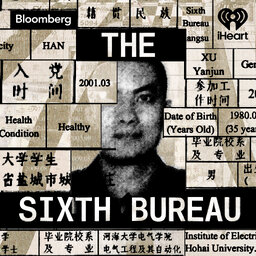CLASSIC: Psilocybin: Fact, Fiction and Future with Robert Lamb
Evidence indicates human beings have been using psychedelics since ancient times, and a recent paradigm shift has launched a new renaissance in psychedelic research. Over the years psychedelics (and psilocybin specifically) have been the subject of both extremely positive and severely negative claims -- so what's the truth? In this episode, special guest Robert Lamb, host of Stuff To Blow Your Mind and Invention, joins the guys to explore the fact, fiction and future of psychedelics.
In 1 playlist(s)
Stuff They Don't Want You To Know
From UFOs to psychic powers and government conspiracies, history is riddled with unexplained events.…Social links
Follow podcast
Recent clips

Strange News: Trump and Aliens, Andrew Gets Arrested, The Story of Takeru Kobayashi and More
58:32

Introducing: The Sixth Bureau
00:58

What is AI Psychosis?
1:23:50
 Stuff They Don't Want You To Know
Stuff They Don't Want You To Know